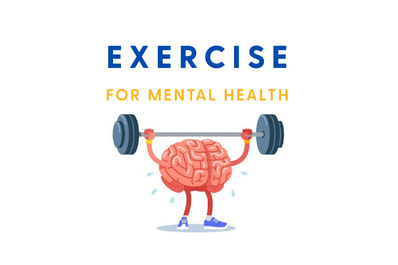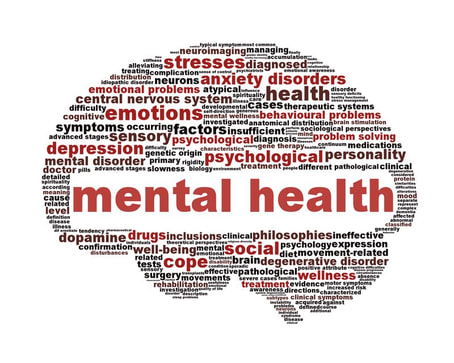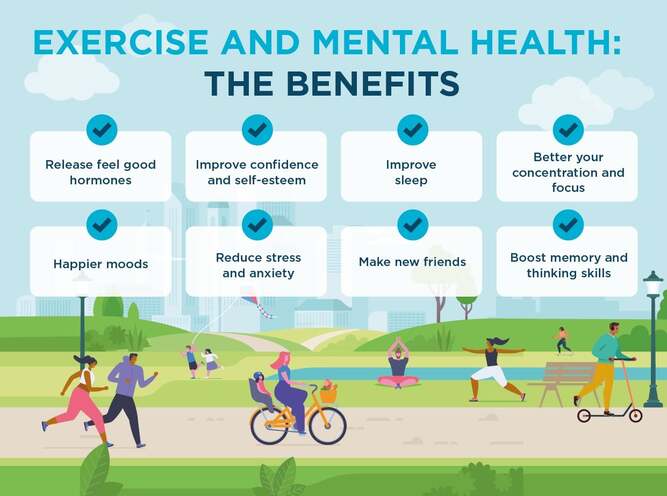|
Introduction Mental health is a critical aspect of our overall well-being, but it is often overlooked or stigmatized. According to the Australian Bureau of Statistics, one in five Australians experiences a mental health condition in any given year. People living with mental health illness have a 15-20 year reduced life expectancy compared to the rest of the population primarily due to an increase in cardiovascular disease. Fortunately, there is growing evidence that exercise can have a significant positive impact on mental health. Regular physical activity has been linked to a reduction in stress, anxiety, and depression symptoms, as well as an improvement in mood and cognitive function. In fact, the 2018 HUNT study showed that 12% of cases of depression could have been prevented with just 1 hour of exercise per week. Further research found physical activity can reduce the odds of depression development by 17%. Furthermore, Studies have found exercise can be just as if not more effective than some medications in treating Depressive symptoms. The COVID-19 pandemic has also exacerbated mental health challenges, with many people experiencing increased stress, anxiety, and depression due to social isolation, economic uncertainty, and health concerns. Exercise plays a critical role and below will give some insight into exercise and mental health. Understanding Mental Health Mental illness refers to a clinically significant disturbance in an individual’s cognition, emotional regulation, or behaviour, usually associated with distress or impairment in important areas of functioning (WHO 2022). Mental health encompasses a range of conditions from mood disorders, anxiety and depression to more severe and persistent conditions such as bipolar disorder and schizophrenia. Mental health disorders can have a significant impact on daily life, including relationships, work or school performance, and quality of life. The Connection Between Exercise and Mental Health Exercise is believed to work through several mechanisms including:
Types of Exercise for Mental Health While any type of exercise can provide mental health benefits, certain types of exercise have been shown to be particularly effective. Here are three types of exercise that have been well-studied for their mental health benefits: A. Aerobic exercise: Involves activities that increase your heart rate and breathing, such as running, cycling, or swimming. Aerobic exercise has been shown to reduce symptoms of depression, anxiety, and stress, and improve cognitive function and self-esteem. The recommended frequency for aerobic exercise is 150 minutes per week of moderate-intensity exercise, such as brisk walking, or 75 minutes per week of vigorous-intensity exercise, such as running. B. Resistance training: Involves exercises that use weights or resistance to build muscle strength and endurance. Resistance training has been shown to improve mood, cognitive function, and self-esteem, and reduce symptoms of anxiety and depression. The recommended frequency for resistance training is at least two days per week, with a focus on all major muscle groups. C. Yoga and mindfulness practices: Yoga and mindfulness practices, such as meditation and deep breathing, have been shown to reduce stress, anxiety, and symptoms of depression, and improve overall well-being. These practices focus on breathing, movement, and mindfulness, and can be done in a class or on your own. The recommended frequency for yoga and mindfulness practices varies, but even a few minutes per day can provide benefits. How to Incorporate Exercise into Your Mental Health Routine Incorporating exercise into your mental health routine can be challenging, but it's worth the effort. Here are some tips to help you get started:
Conclusion In conclusion, exercise is a powerful tool for improving mental health and well-being. Through a combination of aerobic exercise, resistance training, and mindfulness practices, exercise has been shown to reduce symptoms of depression, anxiety, and stress, improve cognitive function, and boost self-esteem. Incorporating exercise into your mental health routine may take some effort, but the benefits are well worth it. By starting small, choosing activities you enjoy, and being consistent, you can create a routine that supports your mental and physical health. So next time you're feeling stressed or down, try incorporating some exercise into your day - your mind and body will thank you.
Izaac Boylan Accredited Exercise Physiologist
0 Comments
|
AuthorSLisa Parkinson Archives
July 2024
Categories
All
|







 RSS Feed
RSS Feed